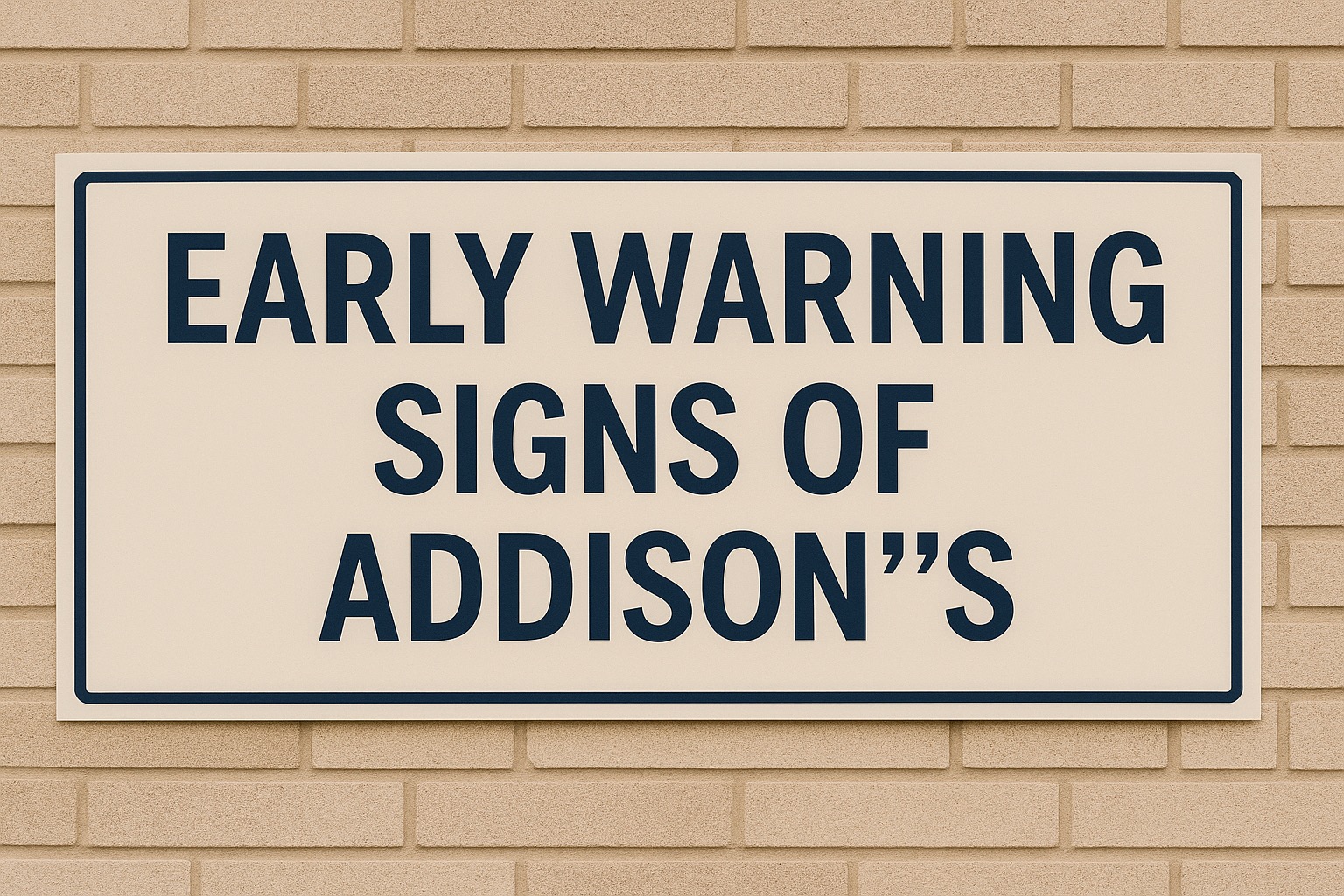
Early Signs of Addison’s Disease in Teens: What Parents Should Know
Addison’s disease, or primary adrenal insufficiency, is rare but serious. It’s often overlooked in teens because its symptoms can mimic everyday issues like fatigue or stress. Catching it early can be life-saving. This guide helps parents and caregivers recognize the early signs of Addison’s disease in teens and understand what steps to take next.
Table of Contents
- What Is Addison’s Disease?
- Why Early Detection Matters
- Common Early Symptoms in Teens
- Less Common but Serious Signs
- Causes of Addison’s Disease in Adolescents
- How Addison’s Disease Is Diagnosed
- Treatment Options for Teens
- Living with Addison’s Disease: What to Expect
- When to Seek Immediate Medical Help
- FAQs
- Conclusion
What Is Addison’s Disease?
Addison’s disease is a disorder where the adrenal glands don’t produce enough hormones, primarily cortisol and sometimes aldosterone. These hormones regulate metabolism, immune function, and blood pressure.
Why Early Detection Matters
Early diagnosis can prevent life-threatening adrenal crises. Delays in treatment can lead to severe complications like shock, coma, or even death.
Common Early Symptoms in Teens
Teens with Addison’s may show vague symptoms that worsen over time:
- Chronic fatigue
- Weight loss
- Loss of appetite
- Dizziness or fainting
- Low blood pressure
- Darkening of the skin (hyperpigmentation)
These symptoms are often mistaken for hormonal changes or school stress.
Less Common but Serious Signs
Some signs are less frequent but more alarming:
- Salt cravings
- Severe abdominal pain
- Muscle weakness
- Nausea, vomiting, or diarrhea
- Irritability and depression
Parents should be alert if multiple symptoms appear together.
Causes of Addison’s Disease in Adolescents
While Addison’s is rare, common causes include:
- Autoimmune disorders (most common)
- Infections like tuberculosis
- Genetic factors
- Adrenal gland injury
External Source: Mayo Clinic — Addison’s Disease Overview
How Addison’s Disease Is Diagnosed
Diagnosis typically involves:
- Blood tests to measure cortisol and ACTH levels.
- ACTH stimulation test to check adrenal response.
- Imaging tests to assess adrenal glands.
Early diagnosis is crucial for preventing crisis situations.
Treatment Options for Teens
Management usually includes:
- Daily hormone replacement therapy (hydrocortisone, fludrocortisone)
- Emergency injection kits for adrenal crises
- Regular monitoring by an endocrinologist
Treatment helps teens lead normal, active lives.
Living with Addison’s Disease: What to Expect
While Addison’s requires lifelong management, many teens adjust well. They need to:
- Take medications daily
- Manage stress carefully
- Carry an emergency medical ID
Education and routine make a huge difference.
When to Seek Immediate Medical Help
Emergency symptoms needing immediate attention:
- Severe weakness
- Confusion
- Severe vomiting and diarrhea
- Loss of consciousness
Immediate hospital care is essential in these cases.
FAQs
1. Can Addison’s disease start during teenage years? Yes, although rare, Addison’s disease can develop during adolescence.
2. Is Addison’s disease curable? No, but it’s manageable with proper hormone replacement therapy.
3. What is the most common cause of Addison’s disease in teens? Autoimmune adrenalitis is the most frequent cause.
4. Can teens with Addison’s play sports? Yes, with proper medication and monitoring, teens can participate in sports.
5. What happens if Addison’s is untreated? It can lead to an adrenal crisis, which is life-threatening.
6. Are there any warning signs before an adrenal crisis? Yes, worsening fatigue, low blood pressure, and confusion often precede a crisis.
7. How often should teens with Addison’s see a doctor? Regular checkups every 3–6 months are typical to adjust medications.
Conclusion
Early recognition of Addison’s disease in teens can prevent life-threatening complications. If your teenager shows multiple warning signs, consult a healthcare provider promptly. Early diagnosis and proper management ensure teens can lead full, healthy lives. Stay informed, stay proactive, and prioritize your child’s health.

Early Signs of Addison’s Disease in Adults: Symptoms You Shouldn’t Ignore –
[…] Early Signs of Addison’s Disease in Teens: What Parents Should Know […]